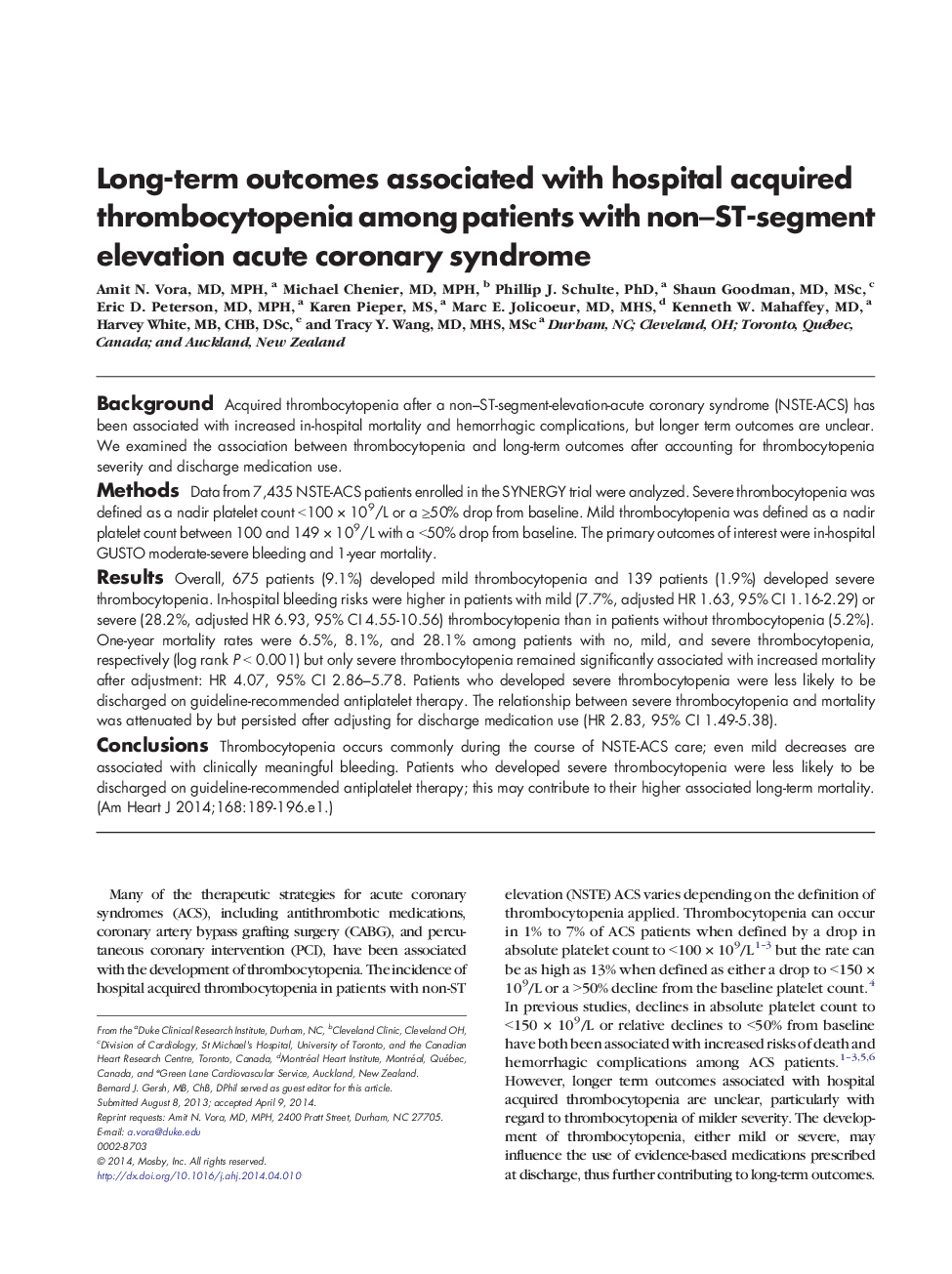| کد مقاله | کد نشریه | سال انتشار | مقاله انگلیسی | نسخه تمام متن |
|---|---|---|---|---|
| 5928240 | 1167773 | 2014 | 9 صفحه PDF | دانلود رایگان |
BackgroundAcquired thrombocytopenia after a non-ST-segment-elevation-acute coronary syndrome (NSTE-ACS) has been associated with increased in-hospital mortality and hemorrhagic complications, but longer term outcomes are unclear. We examined the association between thrombocytopenia and long-term outcomes after accounting for thrombocytopenia severity and discharge medication use.MethodsData from 7,435 NSTE-ACS patients enrolled in the SYNERGY trial were analyzed. Severe thrombocytopenia was defined as a nadir platelet count <100 à 109/L or a â¥50% drop from baseline. Mild thrombocytopenia was defined as a nadir platelet count between 100 and 149 à 109/L with a <50% drop from baseline. The primary outcomes of interest were in-hospital GUSTO moderate-severe bleeding and 1-year mortality.ResultsOverall, 675 patients (9.1%) developed mild thrombocytopenia and 139 patients (1.9%) developed severe thrombocytopenia. In-hospital bleeding risks were higher in patients with mild (7.7%, adjusted HR 1.63, 95% CI 1.16-2.29) or severe (28.2%, adjusted HR 6.93, 95% CI 4.55-10.56) thrombocytopenia than in patients without thrombocytopenia (5.2%). One-year mortality rates were 6.5%, 8.1%, and 28.1% among patients with no, mild, and severe thrombocytopenia, respectively (log rank P < 0.001) but only severe thrombocytopenia remained significantly associated with increased mortality after adjustment: HR 4.07, 95% CI 2.86-5.78. Patients who developed severe thrombocytopenia were less likely to be discharged on guideline-recommended antiplatelet therapy. The relationship between severe thrombocytopenia and mortality was attenuated by but persisted after adjusting for discharge medication use (HR 2.83, 95% CI 1.49-5.38).ConclusionsThrombocytopenia occurs commonly during the course of NSTE-ACS care; even mild decreases are associated with clinically meaningful bleeding. Patients who developed severe thrombocytopenia were less likely to be discharged on guideline-recommended antiplatelet therapy; this may contribute to their higher associated long-term mortality.
Journal: American Heart Journal - Volume 168, Issue 2, August 2014, Pages 189-196.e1
